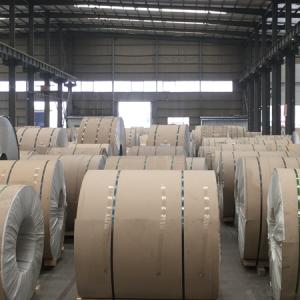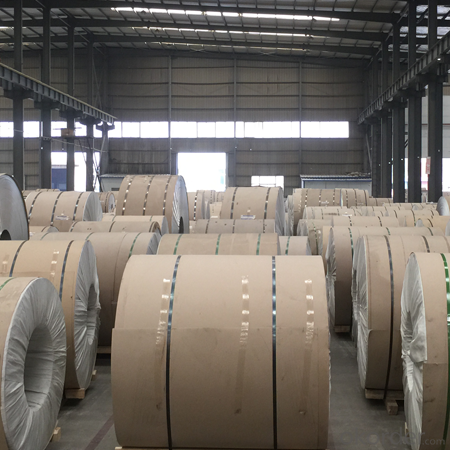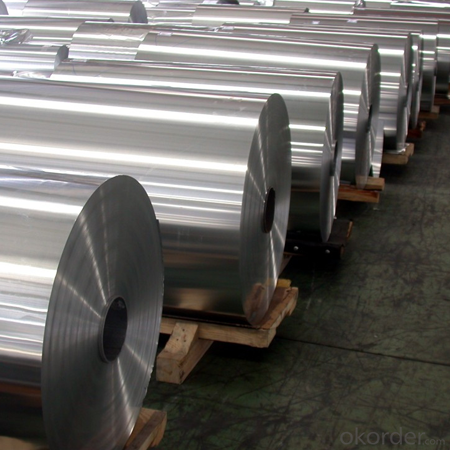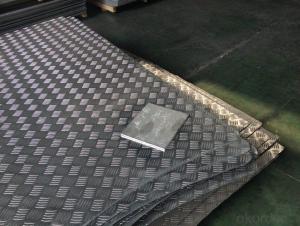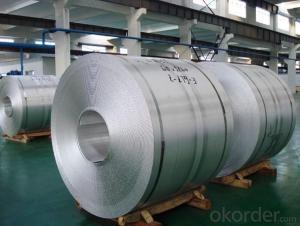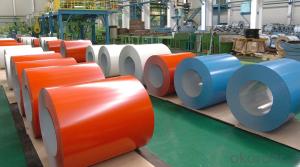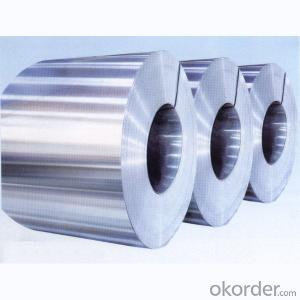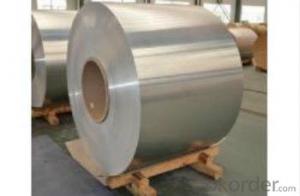1060 Aluminum Coils Wholesale - Aluminum Coil 5754 8011 1050 1060 for Cans
- Loading Port:
- Shanghai
- Payment Terms:
- TT OR LC
- Min Order Qty:
- 5 m.t.
- Supply Capability:
- 6000 m.t./month
OKorder Service Pledge
OKorder Financial Service
You Might Also Like
Specification
Aluminum Coil 5754 8011 1050 1060 Aluminum Coil For Cans
Applications:
Aluminum foil roll is widely used in construction,decoration,hardware,
electric appliances,machinery and other industrial and civil purposes,
such as electronic capacitor,composite cooker,rice cooker,refrigerator,
computer casting,telecommunication,equipment,lamp shade,air conditioner,
cosmetics cover and so on.
Or it can be made as customers’ requirement.
Specifications
color aluminum coil
1000 series 1100 10160 1200
surface could be: Brushed, drawing, embossed, printing
color: red,
color aluminum coil
.Alloy type: 1050/1060/1100/1350
2.Temper: H16, H18, H22, H24
3.Thickness range: 0.1mm-4mm
4.Width range: 25mm-1600mm
5.Surface:finish: bright & smooth surface, without flow lines, slight oiled to avoid white rusting.
6.Quality material:totally free from such defefects as roll marks, edge damager, camber, white rust, oil patches, holes, break lines,
color aluminum coil
Name |
color aluminum coil |
Alloy or not | yes |
Alloy | 1100H16/18, 3003H24,3003H26,3005H26,8011,3004,3105,5005,etc. |
Thickness | 0.1-4mm |
Width | ≤1600mm |
MOQ | 5T |
Coating finish | Brushed, drawing, embossed, printing |
Color | As to code RAL |
Surface | Embossed,Mill Finish,Coated,Brushed |
Gloss | 10-90%(EN ISO-2813:1994) |
Total coating thick | PVDF27 ~35micron |
Polyester18~27micron(EN ISO-2360:1995) | |
Coating hardness | 2H |
Adhesion | 5B (EN ISO-2409:1994) |
Impact resistance | No cracking and peeling (A.S.T.M D2794-1993) |
Flexibility (T-bend) | 0T- 2T |
MEK resistance | 100 |
Certification | ISO9001:2000, CE, SGS |
Coil's standard diameter | 1100mm |
Inner Diameter | 405mm/505mm |
Coil's standard weight | 2000kgs |
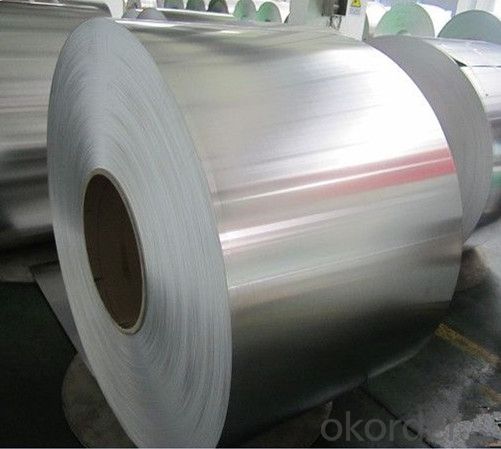
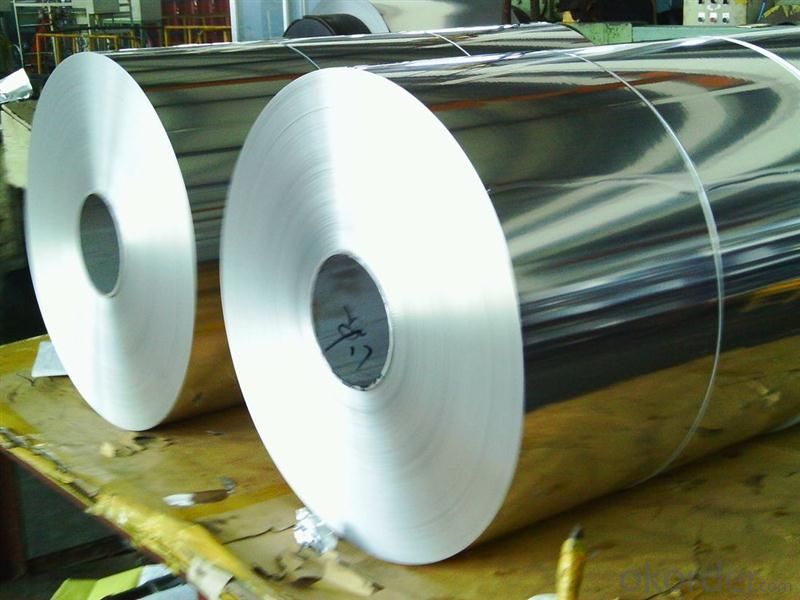
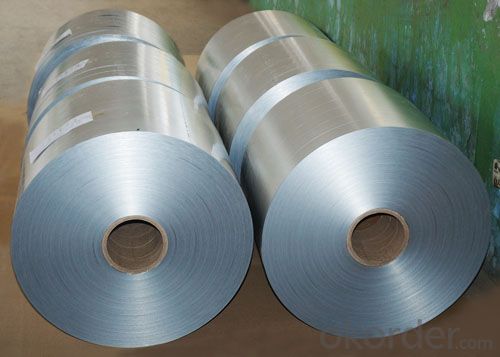
- Q: What is the shear strength of aluminum coils?
- The shear strength of aluminum coils varies depending on the specific alloy and temper. However, on average, aluminum coils have a shear strength ranging from 110 MPa to 190 MPa.
- Q: Are aluminum coils suitable for medical equipment applications?
- Indeed, medical equipment applications can find aluminum coils to be a fitting choice. This is due to the lightweight nature of aluminum, its resistance to corrosion, and its highly commendable thermal conductivity properties. These characteristics render aluminum to be a material of choice for a variety of medical equipment applications, including cooling systems, heat exchangers, and MRI coils. Moreover, the malleability and ease of fabrication of aluminum coils allow for the creation of intricate shapes, thus facilitating customization to meet the specific needs of medical equipment. Nevertheless, it is worth mentioning that the suitability of aluminum coils for medical equipment applications may also hinge upon other factors, such as the particular medical device, regulatory prerequisites, and industry standards.
- Q: What is the typical heat transfer coefficient for aluminum coils?
- The typical heat transfer coefficient for aluminum coils depends on various factors such as the specific application, geometry of the coil, and the surrounding conditions. However, in general, aluminum has a relatively high thermal conductivity, making it an efficient conductor of heat. For forced convection applications, where a fluid such as air or water is used to transfer heat, the heat transfer coefficient for aluminum coils can range from 10 to 100 W/m^2K. This range is influenced by factors such as the flow rate, velocity, and temperature difference between the coil and the fluid. In natural convection scenarios, where heat transfer occurs due to the buoyancy-driven flow of air, the heat transfer coefficient for aluminum coils is typically lower, ranging from 5 to 25 W/m^2K. This lower coefficient is due to the slower movement of air and the reduced heat transfer effectiveness compared to forced convection. It is important to note that these values are general guidelines and can vary significantly depending on specific design considerations, material properties, and operating conditions. Therefore, it is recommended to consult specific heat transfer data or conduct detailed experiments or simulations to determine the precise heat transfer coefficient for a given aluminum coil application.
- Q: Can aluminum coils be used in electrical busbars?
- Yes, aluminum coils can be used in electrical busbars. Aluminum offers good conductivity, is lightweight, and cost-effective, making it suitable for use in busbars. However, proper insulation and connection techniques must be employed to address the higher thermal expansion and potential corrosion issues associated with aluminum.
- Q: How do aluminum coils contribute to the corrosion resistance of marine applications?
- Aluminum coils contribute to the corrosion resistance of marine applications through their inherent properties. Aluminum naturally forms a thin layer of oxide on its surface, which acts as a protective barrier against corrosion. This oxide layer prevents the metal from reacting with water or air, making it highly resistant to rust and corrosion. Additionally, aluminum coils are often coated with protective finishes or treatments that further enhance their resistance to harsh marine environments, ensuring their durability and longevity.
- Q: Can aluminum coils be used in heat sinks?
- Yes, aluminum coils can be used in heat sinks. Aluminum is a popular choice for heat sinks due to its excellent thermal conductivity. Heat sinks are designed to dissipate heat from electronic components and other devices to prevent overheating. The use of aluminum coils in heat sinks allows for increased surface area, which enhances heat dissipation. The coils can be shaped and arranged in various configurations to optimize cooling efficiency. Additionally, aluminum is lightweight, corrosion-resistant, and cost-effective, making it a practical choice for heat sink applications.
- Q: Can aluminum coils be welded or soldered?
- Yes, aluminum coils can be welded or soldered.
- Q: What are the potential applications of recycled aluminum coils?
- Recycled aluminum coils have various potential applications across several industries. They can be used in the manufacturing of automotive parts, such as body panels, engine components, and heat exchangers. Additionally, they can be utilized in the production of building materials like roofing, gutters, and siding due to their corrosion resistance and durability. Moreover, recycled aluminum coils are suitable for packaging purposes, including beverage cans, food containers, and aerosol cans. Their versatility and sustainability make them an excellent choice for a wide range of applications.
- Q: Is it possible to utilize an aluminum coil for heating purposes?
- <p>Yes, aluminum coil can be used as a heater. Aluminum is a good conductor of heat, making it suitable for applications where heat transfer is necessary. However, it's important to note that aluminum has a lower melting point compared to other metals like copper or steel, so it's not ideal for high-temperature applications. Aluminum coils are commonly used in electric heaters, such as toasters and air heaters, where they can efficiently transfer heat to the surrounding air or materials. Always ensure that the aluminum coil is used within safe temperature limits to prevent damage or safety hazards.</p>
- Q: What is the difference between aluminum plate and aluminum coil?
- A sheet is flat, one by one for storage, one for coil material, one roll for storage, but aluminum coil can be leveled by machine, that is aluminum plate.
Send your message to us
1060 Aluminum Coils Wholesale - Aluminum Coil 5754 8011 1050 1060 for Cans
- Loading Port:
- Shanghai
- Payment Terms:
- TT OR LC
- Min Order Qty:
- 5 m.t.
- Supply Capability:
- 6000 m.t./month
OKorder Service Pledge
OKorder Financial Service
Similar products
Hot products
Hot Searches
Related keywords
